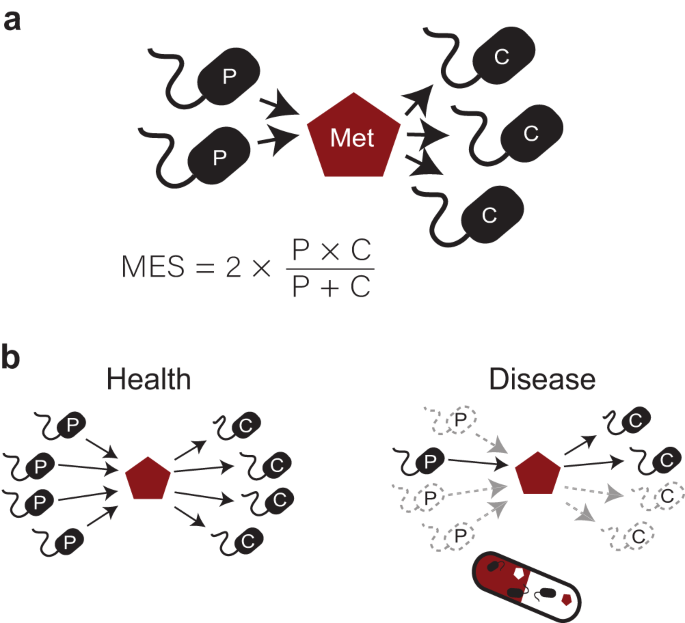💡 This study delves into the introduction and application of a novel Metabolite Exchange Score (MES) to assess cross-feeding interactions within the human gut microbiome.
📌 Using metabolic models of prokaryotic metagenome-assembled genomes from a vast dataset encompassing 11 disease phenotypes, this study identified and ranked metabolic interactions significantly impacted by the loss of cross-feeding partners.
🔴 Methods:
📌 Dataset: The study utilized a diverse dataset comprising metabolic models of over 1600 prokaryotic metagenome-assembled genomes from individuals across 15 countries and 11 disease phenotypes.
📌 Metabolite Exchange Score (MES): MES was introduced as a novel metric to quantify cross-feeding interactions within the gut microbiome. This score allowed for the identification and ranking of metabolic interactions significantly affected by the loss of cross-feeding partners.
📌 Case Studies: The analytical framework was applied to specific cases such as Crohn’s disease, rheumatoid arthritis, and colorectal cancer to assess the utility of MES in identifying disease-specific interactions.
🔴 Key Findings:
📌 Metabolic Links to Diseases: MES analysis revealed significant depletion of cross-feeding interactions in microbiomes associated with 10 out of 11 diseases. This emphasizes the potential therapeutic relevance of restoring these interactions.
📌 Rheumatoid Arthritis and Ribosyl Nicotinamide: The study identified a connection between rheumatoid arthritis and ribosyl nicotinamide, a precursor of nicotinamide adenine dinucleotide (NAD+). Low NAD+ levels were associated with rheumatoid arthritis, and interventions involving NAD+ precursors demonstrated improved clinical outcomes.
📌 Ethanol and Colorectal Cancer: Ethanol metabolism, primarily by gut bacteria, was linked to colorectal cancer. High alcohol consumption increases CRC risk, partly due to microbial conversion of ethanol into carcinogenic acetaldehyde.
📌 Cross-Feeding and Health: The MES approach highlighted several metabolites essential for health, underlining the importance of cross-feeding in maintaining a balanced gut microbiome.
📌 Dietary Influence: The study suggested that the availability of specific metabolites in the gut is influenced by diet. Some metabolites found to have significant MES differences between health and disease are sourced from food, emphasizing the role of diet in shaping cross-feeding interactions.
📌 Microbial Community Diversity: The research indicated that microbial community diversity correlates with the extent of cross-feeding. A higher diversity of species fosters more opportunities for cross-feeding interactions, essential for a healthy gut ecosystem.
📍 This study’s innovative approach to assess cross-feeding interactions within the human gut microbiome provides valuable insights into the role of these interactions in health and disease.
📍Restoring key aspects of the gut ecology, including cross-feeding interactions, may hold the key to more effective and enduring changes in the human gut microbiome. The study contributes to the advancement of microbiome-based therapies and underscores the importance of maintaining a balanced and diverse gut ecosystem.
Link to the article : https://tinyurl.com/2p89tr7j
